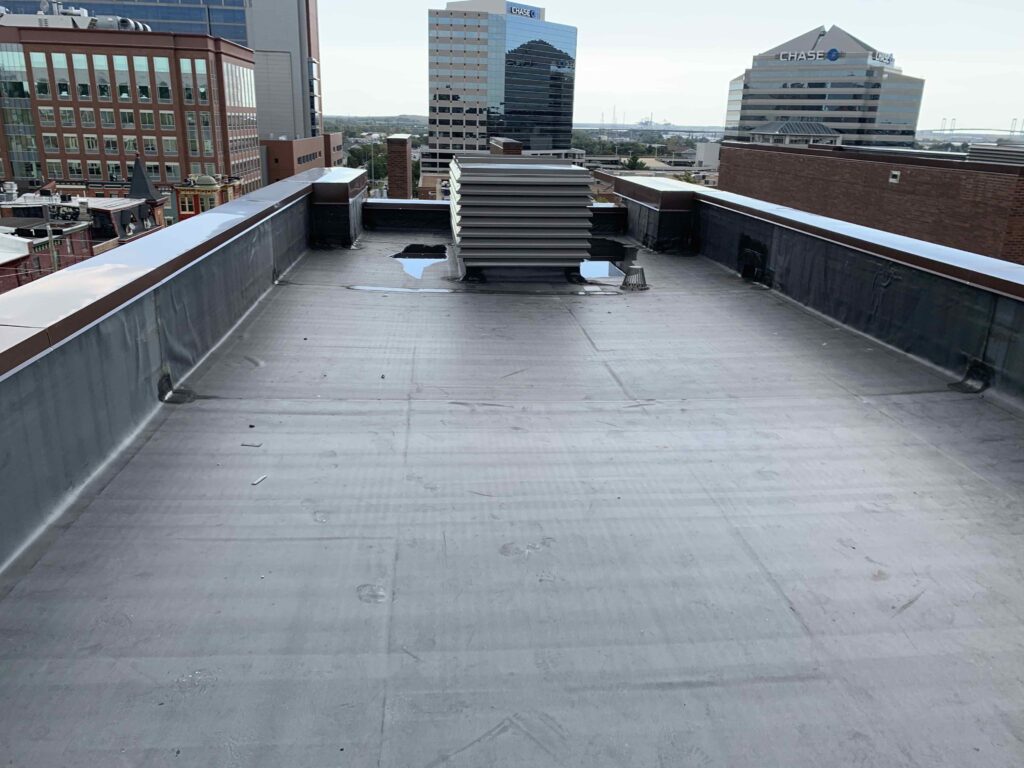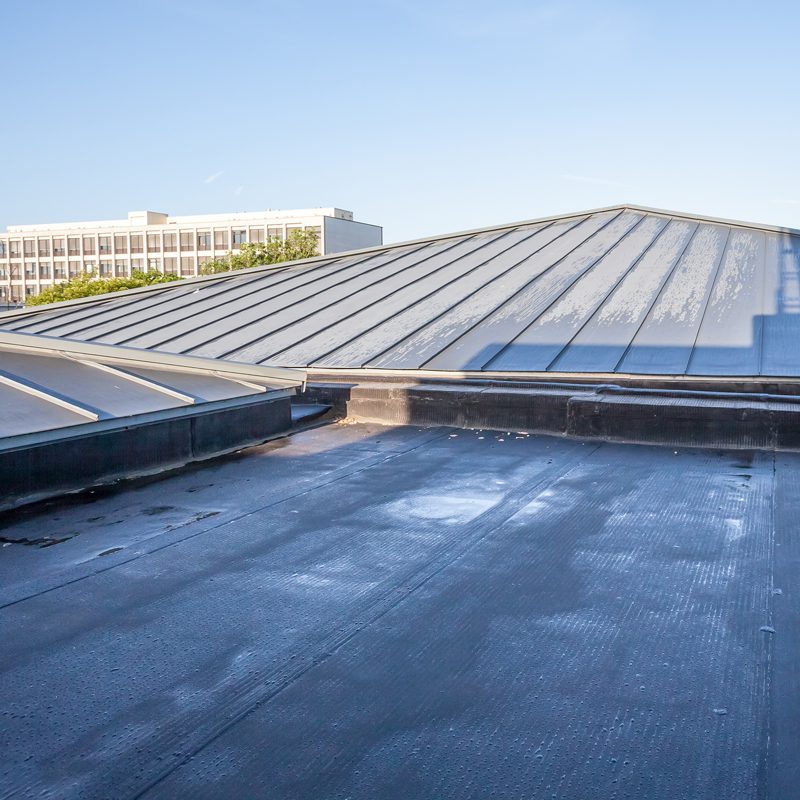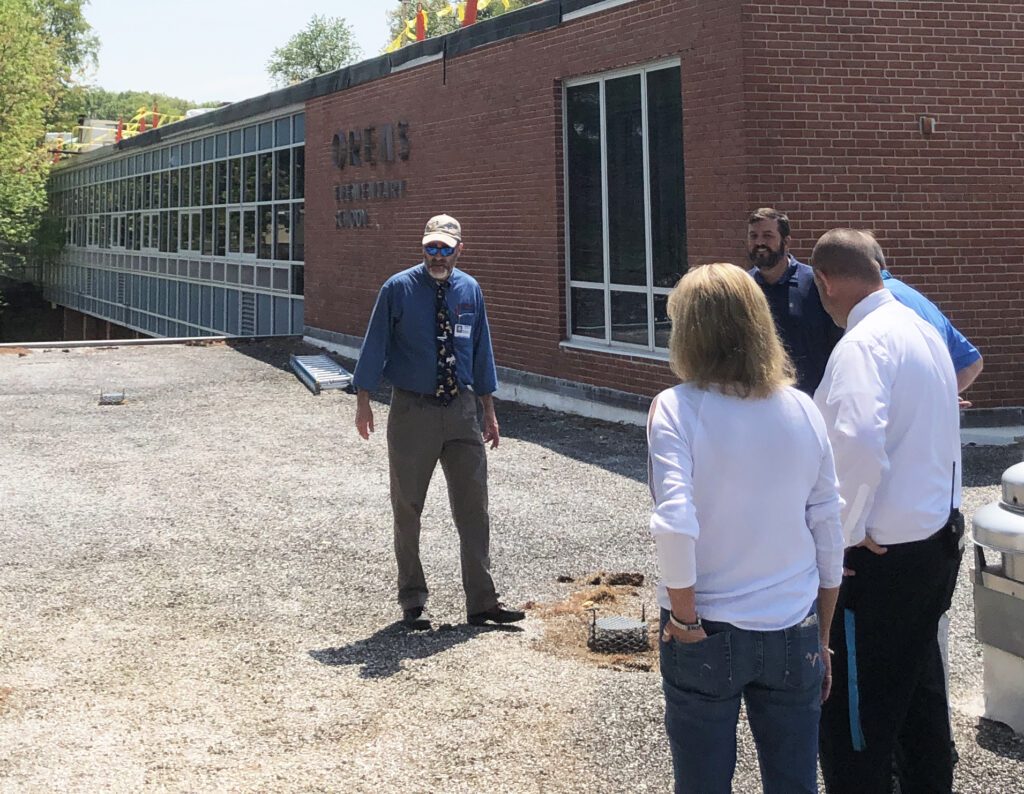Low-Slope Roofs are a Commercial Roofing Specialty
When it comes to the new construction, maintenance, inspection, repair or replacement of low-slope roofs, you’ll need a roofing contractor with specific skills. Our low-slope roof experts are equipped to manage all the challenges that come along with this roofing specialty.
When you hire us, you can rest assured that the roofing portion of your building project will run smoothly, on time and with the highest standards in the industry.

Materials
The unique challenges presented by low-slope roofs include wind, pooling water, UV rays, expansion and contraction, plus freezing and thawing—particularly in our service area of PA, MD, DE, NJ and NY.
Membrane roofing systems for low-slope roofs offer superior waterproofing. There are a number of options, including black rubber (EPDM) and reflective white (TPO, PVC). We’ll walk you through the material recommendation and selection process.
We also install metal low-slope roofs in both standing-seam and screw-down. If a metal roof is your best option, we’ll work with you to choose the right material for your new roof, depending on how much expansion and contraction is expected.
No matter the type of roofing materials we recommend for your commercial application, you can be assured that they will be installed to the highest standards, for maximum life and optimum performance.
Safety
OSHA defines a low-slope roof as one with a pitch of less than 4/12 (that’s 4” of fall for every horizontal 12”). The safety requirements aren’t as rigid as with steep-slope roofs, but still include things like guardrails and personal arrest systems for fall prevention.
Our roofing professionals adhere to, and are certified in, OSHA-required safety practices. This is so we can maintain our good safety record, but there’s more. We care about our workers, as well as those of other contractors on the site. We also take responsibility for the safety of your visitors and employees.
Maintenance
Low-slope roofs require regular inspection and maintenance—not only to prevent leaks before they start, but to extend the overall life of your roof.
We recommend that inspections be conducted twice yearly—in the fall and spring.
A certified commercial roofing inspector will check for issues like…
- wet insulation
- breaches in the roof’s surface
- rust
- galvanic action
- water damage
In addition to low-slope roof inspections, maintenance should include things like…
- elimination of water ponding
- diagnosis and correction of blisters
- repair or replacement of cracked areas
- tightening of loose fasteners and roofing materials
- removal of debris



